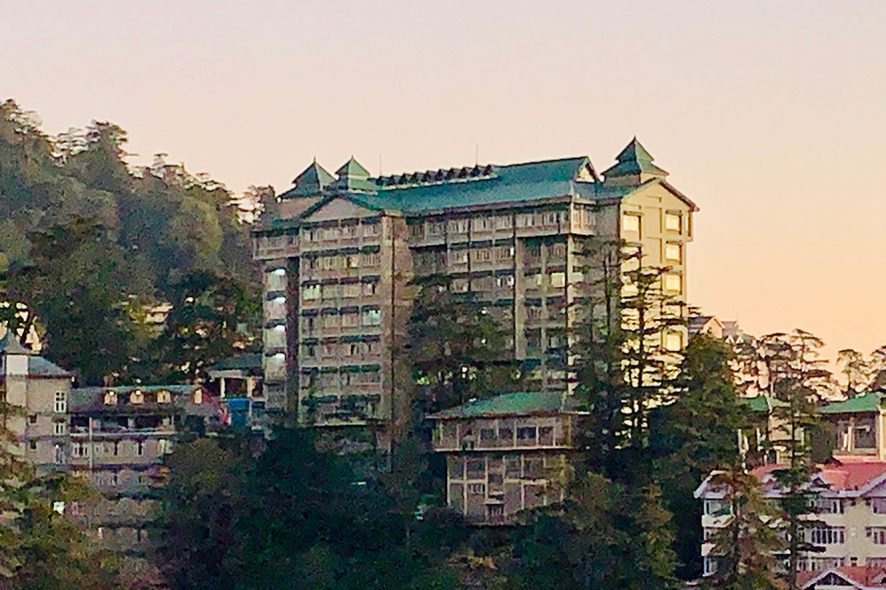Himachal Pradesh High Court: A civil writ petition was entertained by a Division Bench of V. Ramasubramanian, C.J. and Anoop Chitkara, JJ. where the petitioners were engaged on a contractual basis as Trainer in various Industrial training institute and they challenged the cut-off date fixed under notification of the Department of Technical Education by the Government.
The petitioners prayed for a direction to the respondents to frame a similar policy as framed by the Notification of 2015, for the benefit of those who were appointed after the cut-off date. Incidentally, the petitioners also challenged the last communication, by which their services were directed to be extended till the end of the current academic session/year, with a further direction not to engage their services thereafter.
Factual matrix of the case was that earlier in 2003, Government launched a Scheme for the upgradation of Government Industrial Training Institutes in the country into Centers of Excellence. The Scheme was actually floated in 2005-2006. Pursuant to the abovementioned scheme an agreement was constituted by Institute Management Committee, which was registered as a Society under the Societies Registration Act. Subsequently, Government of Himachal Pradesh undertook to delegate to the Institute Management Committee, adequate administrative and the financial powers to appoint contract faculty as per need. Pursuant to the aforesaid agreement, a large number of candidates were appointed to the Institute Management Committee as Instructors/Trainers on a contractual basis. After continuing for a long period of time, the craving for equal pay for equal work and for regularization started. This led to a batch of writ petitions being instituted. The Court earlier allowed the batch of cases and declared that the Instructors/Trainers appointed shall be deemed to be appointed as Lecturers with all consequential benefits. The State was directed to regularize the services of those who had completed six years of uninterrupted service. Hence an appeal was filed by the petitioner and a Division Bench eventually, directed to the State Government to examine the case of the petitioners in those batch of cases for regularization or conversion. The benefits were restricted as in the implementation of the said judgment of the Division Bench; the Government framed a policy by way of a ‘One Time Measure’ and issued a Notification. By that Notification, the Government took over the services of all the teaching and non-teaching employees engaged on a contract basis either through the Institute Management Committee or through the Student Welfare Fund. By the Scheme, it was clear that those who were engaged up to July 2015 were entitled to benefit of absorption, upon their completing 7 years of service.
Petitioners contended that they were also entitled to be absorbed on a regular basis, on par with persons who benefited by the Policy of 2015, it was argued by M.L. Sharma, counsel for the petitioners that the prescription of an artificial cut-off date for extending the benefit of the Policy was arbitrary and unfair, and violated Articles 14 & 16 of the Constitution, as the same had no nexus with the object sought to be archived by the Policy; it was further highlighted that all persons appointed on contract basis, both before and after July 2015, form the same class and no intelligible differentia existed between the two, justifying a discriminatory treatment;
In response to the aforesaid contentions, it was argued by the learned Advocate General that the Policy of 2015 was intended to be a ‘One Time Measure’; that the appointments on contract basis were actually appointments made otherwise than through the Statutory Rules and, hence, no right of absorption was inured to the appointees; that when the Scheme itself was framed for the benefit of a set of individuals, who were in service as on a particular date, the question of introducing an artificial cut-off date and the question of discriminating between two sets of candidates had not arose and that the arguments based upon Articles 14 & 16 of the Constitution were ill-founded.
The Court evaluated the decisions cited by the parties such as D.S. Nakara v. Union of India, (1983) 1 SCC 305 and State of A.P. v. N. Subbarayudu, (2008) 14 SCC 702, where the Supreme Court held that “cut-off date is fixed by the Executive Authority keeping in view the economic conditions, financial constraints and many other administrative and attending circumstances. In fact, the rigid view taken in D.S. Nakara was actually watered down subsequently and the same was noted by the Supreme Court in its decision in State of Punjab v. Amar Nath Goyal, (2005) 6 SCC 754: “We are afraid that the refrain of D.S. Nakara has been flayed too often to retain its initial charm, which has been worn thin by subsequent dicta.’” Accordingly, the Court found no merits in the petition and dismissed the same.[Sanjeev Kumar v. State of Himachal Pradesh, 2019 SCC OnLine HP 972, decided on 10-07-2019]







